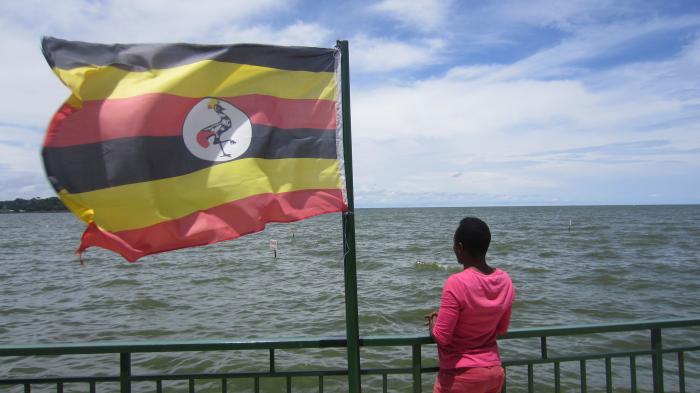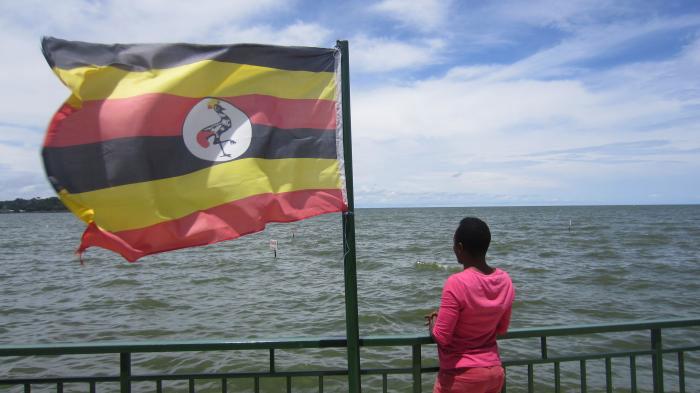

(Kampala) – Uganda’s Sexual Offenses Bill, 2019 both criminalizes consensual sex acts and would allow some nonconsensual acts to go unpunished, Human Rights Watch said today.
The bill, approved by parliament on May 3, 2021, violates international human rights law by criminalizing consensual sexual acts between adults and yet falls short in its definition of consent. While offering provisions designed to prevent and punish sexual violence, it also further criminalizes lesbian, gay, bisexual, and transgender (LGBT) people and sex workers.
“Ugandan lawmakers should focus on ending endemic sexual violence rather than seeing this as an opportunity to imbed abusive provisions that criminalize the sex lives of consenting adults,” said Mausi Segun, Africa director at Human Rights Watch. “Sexual offenses legislation should advance the rights of survivors and potential victims of violence, not enshrine rights violations into law.”
The bill includes some positive provisions toward addressing sexual violence, including protecting sexual assault survivors’ rights during criminal proceedings and criminalizing sexual harassment by people in positions of authority, Human Rights Watch said.
But it also punishes any “sexual act between persons of the same gender,” as well as anal sex between people of any gender, with up to 10 years in prison, in flagrant violation of the rights to privacy and nondiscrimination. It even provides that if Ugandans perform these sexual acts outside Uganda, they can be prosecuted in Uganda. It also includes provisions that discriminate based on HIV status and that could punish those who report crimes and allows for the death penalty for certain offenses.
Uganda’s penal code already criminalizes consensual same-sex conduct through a provision that punishes “carnal knowledge against the order of nature” with up to life in prison. In 2014, parliament passed the Anti-Homosexuality Act, which further criminalized same-sex acts, restricted freedom of association, and incited discrimination against LGBT people. The Constitutional Court overturned the 2014 Act on the grounds that lawmakers passed the bill without the requisite quorum.
The criminalization of consensual same-sex acts means that LGBT survivors of sexual violence are unlikely to seek access to or obtain justice. In the wake of the passage of the Anti-Homosexuality Act, gay and transgender victims of violence told Human Rights Watch and Amnesty International that they were hesitant to follow up on a police complaint against their assailants out of fear that they themselves could be arrested.
Ugandan feminists and human rights activists advocated for a sexual offenses bill that would decriminalize sex work, saying that criminalization fosters violence and limits access to justice. However, parliament rejected their recommendations, maintaining prison sentences for sex workers, clients, and brothel keepers. Human Rights Watch supports the Ugandan activists in opposing the criminalization of consensual adult sex work. Criminalization leads to violations of the rights of and abusive working conditions for those involved and contributes to impunity for those who commit violence against sex workers.
Perversely, parliament also limited the requirement for consent to sexual acts by removing a provision that would have clarified that consent may be withdrawn “at any time before or during the performance of the sexual act.” Legislation on sexual violence should consider any sexual act that takes place after consent has been withdrawn to be a form of sexual assault, Human Rights Watch said.
The Sexual Offenses Bill includes other provisions that violate rights. The bill prescribes the death sentence for “aggravated rape,” including when rape is committed by a person who is HIV positive. Human Rights Watch opposes the death penalty under all circumstances, as well as any enhanced penalties based on a person’s HIV status.
Because the bill provides for extraterritorial jurisdiction, Ugandans who engage in consensual same-gender sexual conduct or anal sex outside Uganda could be prosecuted, irrespective of whether such conduct is legal where it takes place. If this provision is adopted, no country should send a person to Uganda if they could face charges for such offenses in violation of international law. To do so would violate their own obligations under international law of nonrefoulement – the prohibition on returning someone to a country where they could face torture, cruel, inhuman, or degrading treatment or punishment, and other irreparable harm.
The bill also provides that anyone who commits these offenses would be entered on a sex offenders register, in effect opening up the possibility of having a “register” of LGBT people or sex workers in Uganda that would not only be discriminatory but ripe for serious abuse.
The bill punishes family members who fail to report any offenses under the bill with up to three years in prison, effectively requiring Ugandans to turn in their LGBT relatives.
The bill criminalizes “false sexual allegations,” a provision that activists fear could be used against survivors in a legal system that has often disregarded their claims. While the stated purpose of the bill includes preventing sexual offenses, the bill makes no effort to address underlying causes of widespread sexual violence, including gender inequality and the absence of comprehensive sexuality education. It does not address protection and assistance for survivors. An exclusive focus on punitive responses is unlikely to root out sexual violence, Human Rights Watch said.
“The Sexual Offenses Bill does not do enough for survivors, conflates consensual sexual acts with violence, and offers tools to persecute LGBT people and sex workers in Uganda,” Segun said. “President Museveni should reject the bill and instruct parliament to present a revised bill that takes a proper rights-respecting approach to addressing sexual violence, so that survivors and the general public can reap the benefits.”